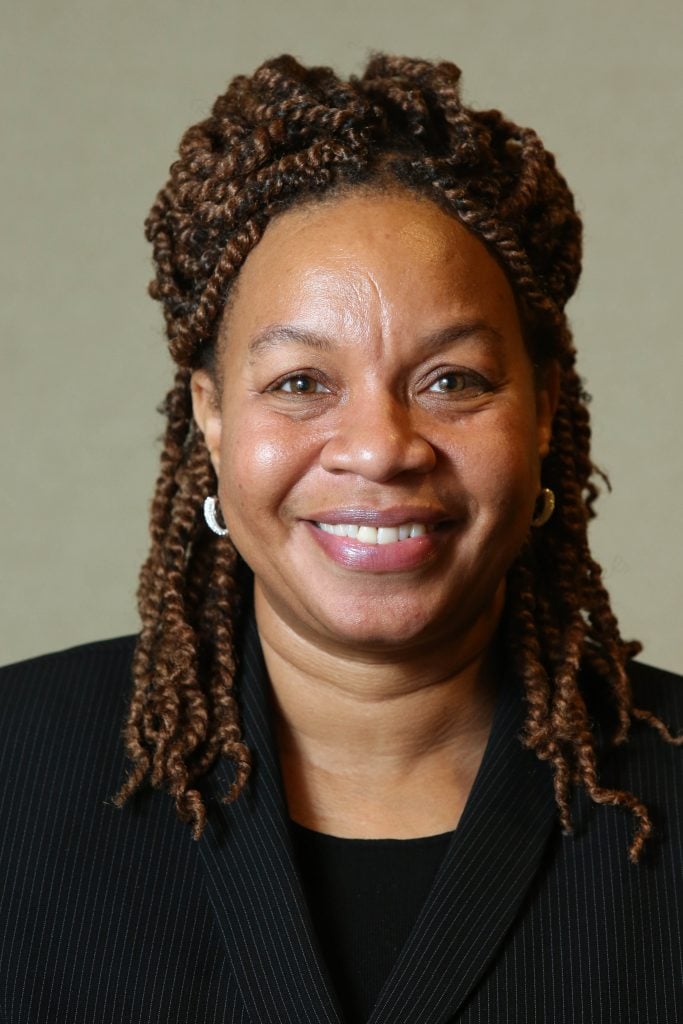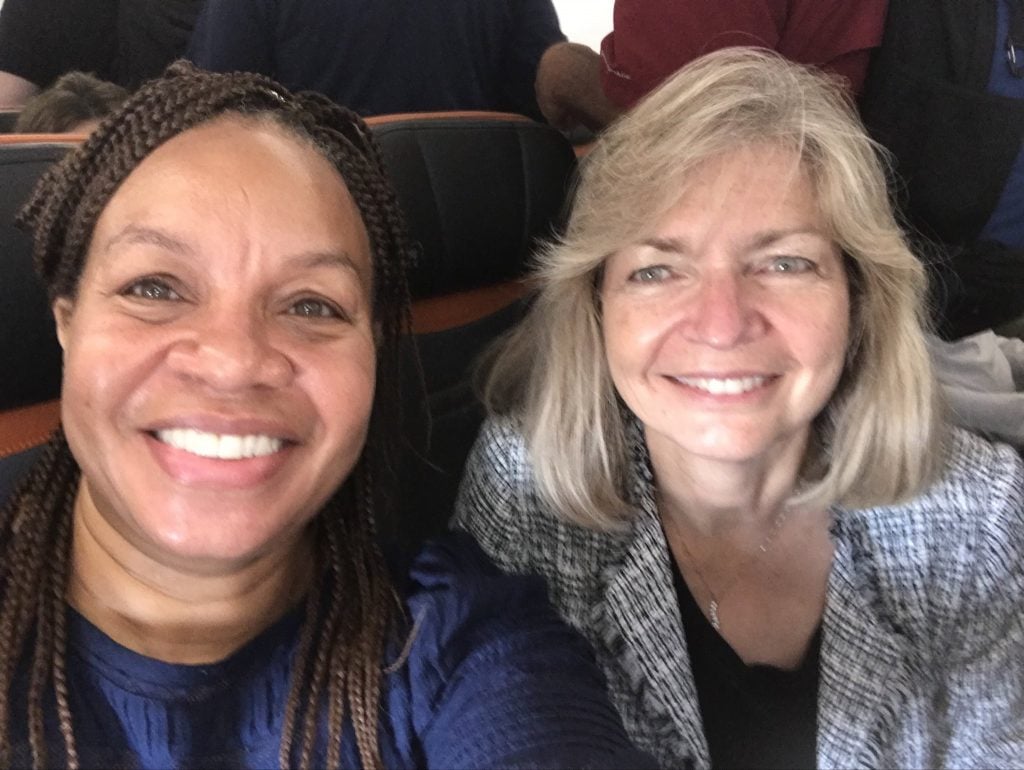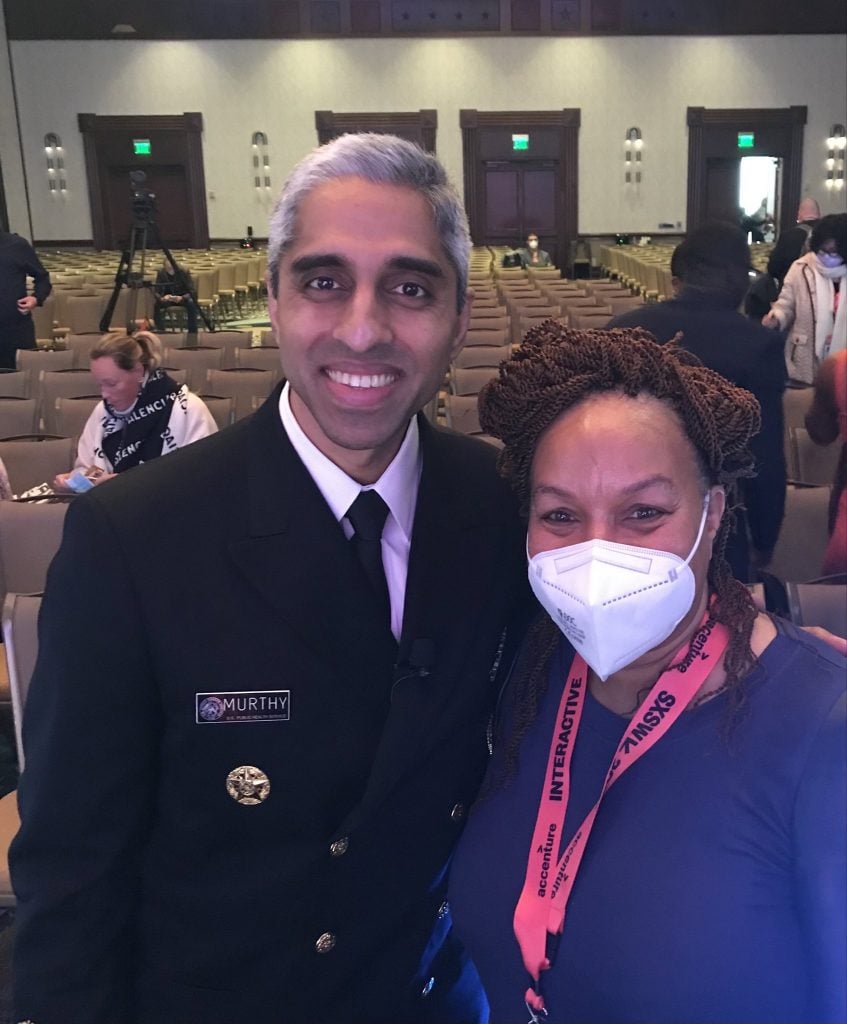Attendees at ENDO 2023 will have the opportunity to hear a unique perspective on a scientist’s career that flourished through academia, government, and industry. In her Meet the Scientist session, “A research career in government and industry, making sure drugs are safe and meaningful,” Cherie L. Butts, PhD, will not only detail her own career, but she will emphasize how scientists can work across disciplines to create new therapies to improve human health.

At ENDO 2023, on June 15, 2023, from 3:15 PM to 4:00 PM, Chérie L. Butts, PhD, will present “A research career in government and industry, making sure drugs are safe and meaningful,” a session on her career from academia and transitions from bench scientist to clinical trialist.
Her path began at the Johns Hopkins University in Baltimore, Md., then to The University of Texas MD Anderson Cancer Center in Houston. Rather than heading up her own lab in an academic research center, she took her research acumen into the government sphere at the National Institutes of Health (NIH) and the U.S. Food and Drug Administration (FDA). During this phase, she learned regulatory drug application review, which she now leverages at Biogen (a biotechnology company in Cambridge, Mass.), where she is a clinical trialist in the Therapeutics Development Unit.
Focusing on Key Questions
Rather than present a timeline, Butts will discuss how those spheres are interconnected and inspired her to activism. This presentation will be more than a talk: it will be a call to action. Although she gets regular inquiries on how to work in industry and make drugs that matter — laudable goals to be sure — what is more important than recruiting to industry to her is that people in their respective spheres are doing the right work within those spheres, always with the ultimate endgame in sight: advancing our understanding of the science to develop new medicines.
To this end, Butts has two primary goals for this session. “Number one,” she says, “I want to help people appreciate the key questions in government, which focuses on public health, and the key questions in industry, which focuses on product development. Compare that to most academic research, which is about advancing scientific knowledge in general and publications.”

Her second goal is educating about funding models like that of Advanced Research Projects Agency for Health (ARPA-H), an entity within the NIH that launched in 2022; Small Business Innovation Research (SBIR); and Small Business Technology Transfer (STTR) research. “Those programs support investigators through contracts,” she explains. “Many in academia only know how to write grants. I’d really like people to understand that the expectations are different with contracts. One concern I raised about ARPA-H is the timing of projects and focus on products as we do in industry, rather than publishing results — there are so few who understand how to work on an industry project, which risks exacerbating gaps in funding toward those who are more familiar — and in cities where this happens naturally, such as Boston and San Francisco.”
Indeed, ARPA-H had a budget of $2.5 billion last year, which sounds like enough to go around if researchers understand how to avail themselves of this largesse. One way Butts is trying to raise awareness about the disparity issue is through workshops, such as the one she is leading with the National Academies in October (Preparing the Future Workforce in Drug Research & Development – A Workshop). “I’d really like to help people understand that they can conduct their research to support drug/device/diagnostic development in academia, which is critical for industry. Changing how they design experiments will open up entirely new sources of funding. One of ARPA-H’s main goals is to include a health equity component in every project,” she says. “Who is better to contribute to this than those working in communities (e.g., rural, urban, LGTBQ+, underrepresented) across the United States and beyond — a hallmark of academic research?”
“I’d really like to help people understand that they can conduct their research to support drug/device/diagnostic development in academia, which is critical for industry. Changing how they design experiments will open up entirely new sources of funding.”
Cherie L. Butts, PhD, medical director, Therapeutics Unit, Biogen, Cambridge, Massachusetts
Butts did a yearlong health equity assignment in 2021 and recognized the importance of acting locally to ensure efforts are relevant and sustainable. This underscores a need for researchers in all regions to contribute.
Regarding how experiments should be designed to attain better equity, it comes down to the “who and the when,” as not every drug is going to work in every patient. Patient profiles (the “who”) and disease stage (the “when”) influence whether a therapy works or not. “I learned during my time at FDA that many trials failed because they had the wrong participants, not because the drug wasn’t good and not because the study wasn’t designed properly.”
Even when a drug worked very well on one patient cohort, if it did not work well on most, the trial is deemed a failure. As a clinical trialist, Butts focuses on ensuring the most appropriate patient profiles and stage of disease are taken into account when recruiting participants to evaluate new therapies.

Redefining Success
Informing all her work is the underlying premise that how we define success in science may need reframing. Having been in all three spheres, she says she sees the interconnectedness among academia, government, and industry.
“I didn’t plan to take this career path but now see the vast number of ways science is advanced and want to share that knowledge with everyone. If we do not have individuals with a scientific background working in all parts of the healthcare ecosystem, we risk disinformation and misinformation permeating the general public and confusing them on basic principles, such as the importance of vaccines. We saw this with COVID-19.” Science can and does extend beyond the research bench and clinic into policymaking, and we need more participation in all areas.
“I learned during my time at FDA that many trials failed because they had the wrong participants, not because the drug wasn’t good and not because the study wasn’t designed properly.”
Cherie L. Butts, PhD, medical director, Therapeutics Unit, Biogen, Cambridge, Massachusetts
As inspirational and important as Butts’ work and message clearly are, Part 1 of this call to action is simple: attend her presentation. As for Part 2, “I don’t want you to just walk away and say, ‘oh, that was interesting’,” she says. “I want you to walk away feeling like you’ve got to do something with it.”
Horvath is a freelance writer based in Baltimore, Md. In the May issue, she wrote about the ENDO 2023 session “Is there a role for vitamin D supplementation for women at risk for osteoporotic fracture?”

